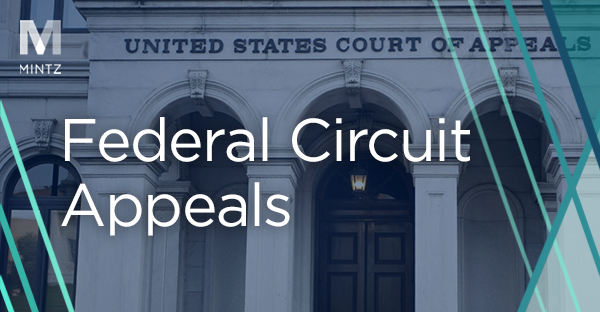
Life Sciences
Viewpoints
Filter by:
Trump Signs Executive Orders Aimed at Tying Domestic Drug Prices to Foreign Prices
September 15, 2020 | Blog | By Theresa Carnegie
President Trump has followed through on his threat to pharmaceutical manufacturers, signing new executive orders on Sunday that take a preliminary step toward the President’s goal of tying domestic drug prices to the prices manufacturers charge in foreign countries. The “Executive Order on Lowering Drug Prices by Putting America First” follows a trio of drug pricing-related executive orders the administration issued this past July. At that time, President Trump also signed a different executive order with the same name, but withheld the order in an attempt to force pharmaceutical manufacturers to the negotiating table. The President warned manufacturers that if they did not propose alternatives to lower drug pricing within 30 days, his administration would take action to implement its previously-abandoned plan to peg U.S. drug prices to foreign prices. Sunday’s order follows weeks of negotiations between the White House and drug manufacturers that have apparently not resulted in any mutually-acceptable proposals for lowering American drug prices.
Read more
Life Sciences Newsletter — Inaugural Edition
August 20, 2020 | Article | By Adam Lenain, William Whelan, Jonathan L. Kravetz, Terri Shieh-Newton
The inaugural Mintz Life Sciences Newsletter brings the latest developments in life sciences, legal insights, and industry activity straight to your inbox.
Read more
Sort It Out: Cell Sorting Method with Data Processing Steps Patent Eligible
August 11, 2020 | Blog | By Brad M Scheller
In XY, LLC v. Trans Ova Genetics, LC (Case 2019-1789, issued July 31, 2020), the Federal Circuit provided another example of a life sciences method claim avoiding patent ineligibility under the Alice framework at step one, altogether avoiding the “inventive concept” analysis under step two.
Read more
BAND TOGETHER: Corporate & Cultural Convergence in Life Sciences M&A
June 24, 2020 | | By William Whelan, Joshua D. Fox
The Mintz and Mergermarket report on recent M&A activity in the life sciences sector examines deal drivers and companies’ post-closing integration experiences.
Read more
AbbVie’s Enforcement of its ‘Patent Thicket’ For Humira Under the BPCIA Does Not Provide Cognizable Basis for an Antitrust Violation
June 18, 2020 | Blog | By Rich Gervase, Tinny Song
In a recent decision in In Re Humira (Adalimumab) Antitrust Litigation), No. 19-cv-1873, Judge Shah of the Northern District of Illinois dismissed a consolidated class action complaint filed by U.S. purchasers of AbbVie Inc.’s blockbuster biologic drug Humira alleging that AbbVie had prevented manufacturers of competing biosimilar drugs (“biosimilars”) from entering the U.S. market in violation of federal and state antitrust laws.
Read more
COVID-19: Prioritized Patent Application Examination and Patents 4 Partnerships
May 15, 2020 | Blog | By Peter Corless
The United States Patent and Trademark Office (USPTO) has recently launched two new initiatives to support COVID-19 innovations: 1) a COVID-19 Prioritized Examination Pilot Program, and 2) Patents 4 Partnerships that provides a searchable forum to list COVID-19 related published applications and patents available for licensing.
Read more
Next Steps for 21st Century Cures 2.0
May 8, 2020 | Blog
On Monday, April 27, Representatives Diana DeGette (D-CO) and Fred Upton (R-MI) announced the next steps for 21st Century Cures 2.0 (Cures 2.0), legislation that will build on the original 21st Century Cures Act enacted in December 2016 (Cures 1.0). While Cures 1.0 aimed to speed up the process of bringing new treatments to market, Cures 2.0 is generally envisioned to emphasize public health and streamlined care delivery, particularly in light of the COVID-19 pandemic. Elements envisioned to be in Cures 2.0 were outlined in a recently published concept paper that we discuss in this post.
Read more
In Case You Missed It: COVID-19 Webinars to Keep You Informed
April 24, 2020 | Blog
The ongoing COVID-19 pandemic has introduced uncertainty and unique challenges in nearly every aspect of life. During this unprecedented time, Mintz is working to keep our clients and community informed and empowered to navigate this new world. To that end, we’ve created a number of webinars on a variety of COVID-19-related topics of interest to health care industry stakeholders. In case you missed them, here’s a highlights reel of what we’ve covered so far – just click on the links below to access the webinar recordings.
Read more
Celgene v. Sun Pharma Global: Satisfying Subject Matter Jurisdiction Under § 271(e)(2)
April 13, 2020 | Blog | By Adam Samansky, Peter Cuomo, Joe Rutkowski
On April 6, 2020, the U.S. District Court for the District of New Jersey, in Celgene Corp. v. Sun Pharma Global FZE, No. 19-cv-10099, denied Sun’s motion to dismiss Celgene’s claims that Sun’s generic Revlimid® (lenalidomide) Abbreviated New Drug Application (ANDA) product infringes three patents not listed in the Orange Book for Revlimid® and for which Sun did not make any Paragraph IV certifications.
Read more
FDA Expands Face Mask Enforcement Policy to Allow Imports of KN95 Respirators
April 7, 2020 | Blog | By Benjamin Zegarelli
On April 2, 2020, the Food and Drug Administration (FDA) issued a revised temporary enforcement policy regarding the manufacture and distribution of face masks and filtering facepiece respirators during the COVID-19 public health emergency. The revisions address two key omissions from the initial policy, which was released on March 25, 2020 and which we summarized in a prior blog post. Specifically, the agency has now provided guidance on: (1) the importation of respirators not approved by the National Institute for Occupational Safety and Health (NIOSH) and (2) the manufacture and distribution of face shields. FDA also added a question and answer about respirators manufactured in China to the KN95 air filtering standard (the Chinese equivalent of the U.S. government’s N95 standard) to its FAQ page on the personal protective equipment shortage and issued an emergency use authorization for non-NIOSH-approved respirators made in China.
Read more
India Orders Shutdown Impacting Millions of Outsourced Technology and Financial Sector Workers
March 26, 2020 | Alert | By Julie Korostoff, Meredith M. Leary, Laura A. Stacey
This alert discusses what companies outsourcing critical business process functions to India should do in light of the Indian government’s order that telecom, IT, and other technology companies should, as far as possible, work from home.
Read more
Closing the Orphan Drug Act Loophole
February 18, 2020 | Blog
On Tuesday, February 11, 2020, Senators Bill Cassidy (R-LA), Jeanne Shaheen (D-NH), and Tammy Baldwin (D-WI) introduced legislation to eliminate the “orphan drug loophole.” Current law allows the Food and Drug Administration (FDA) to grant seven years of market exclusivity to a drug manufacturer if the drug is intended to treat a disease or condition affecting fewer than 200,000 patients in the U.S., or less commonly, if the manufacturer cannot expect to recover the costs of developing and marketing a drug. In some cases, even if the drug developer meets the orphan drug criterion of having no hope of recovering the costs, the drug does actually become profitable—some significantly so—but competitors are still barred from entering the market with a lower-cost alternative during the 7-year exclusivity period that exists by operation of law. To combat this issue, the recently introduced Senate bill (as well as a nearly-identical House bill introduced in October 2019) targets a loophole that allows market exclusivity under the Orphan Drug Act to be extended for future versions of the same drug without the drug's manufacturer having to show that the drug remains unprofitable.
Read more
FDA User Fees: Highlights from FDARA & Our Forecast for the Next Round
February 3, 2020 | Blog
As discussed in an earlier blog post, the process for reauthorizing human medical product user fee programs at the Food and Drug Administration (FDA) for another 5-year period is getting started this year. Below we highlight some changes made to the programs when they were last reauthorized through the 2017 Food and Drug Administration Reauthorization Act (FDARA) (P.L. 115-52) and consider what could be included in the upcoming user fee reauthorization package.
Read more
Patenting Considerations for Artificial Intelligence in Biotech and Synthetic Biology – Part 2: Key Issues in Patent Subject Matter Eligibility
January 30, 2020 | Blog | By Terri Shieh-Newton, Marguerite McConihe
In our first blog in this multi-part series, we explored key considerations for protecting artificial intelligence (“AI”) inventions in biotech and synthetic biology. In this part 2 of the series, we will examine some key considerations and hurdles in patenting machine learning-based biotech or synthetic biology inventions.
Read more
FDA User Fees: How Do They Work?
January 28, 2020 | Blog
A history of FDA human medical product user fee programs, including those for prescription drugs (PDUFA), generic drugs (GDUFA), biosimilars (BsUFA), and medical devices (MDUFA), their negotiation and reauthorization, and how manufacturers and patients can participate and get involved in the negotiations.
Read more
Health Care Provisions in 2020 Spending Package
January 9, 2020 | Blog
On December 20, 2019, the President signed into law a bill to fund the federal government through September 30, 2020. The bill included several important health care provisions but left some longstanding policy challenges unresolved. Most notable changes to law are the elimination of three Affordable Care Act taxes and the passage of the CREATES Act. Noticeably absent is legislation related to surprise billing and prescription drug pricing. A summary of key health care provisions included in the 2020 Consolidated Appropriations Act (P.L. 116-94) follows. We will address the legislative outlook for 2020 in a separate ML Strategies blog post next week.
Read more
Venture Debt 101: A Discussion of the Basics and Key Considerations
October 9, 2019 | Podcast | By Will Perkins
In this episode of MintzEdge’s From the Edge podcast, Will Perkins speaks with Phil Gager of Stifel about venture debt.
Read more
GAO Report Sheds Light on Drug Manufacturers’ Expanded Access Programs
September 17, 2019 | Blog | By Joanne Hawana
Out of a sample of 29 non-representative drug manufacturers surveyed earlier this year, 23 had publicly posted policies related to accessing their investigational drugs outside of the context of formal clinical trials, according to the General Accountability Office (GAO). Of those 23 company policies, GAO reports that nineteen of them stated that the manufacturer would consider individual requests for expanded access to their drug candidates, while the remaining four companies stated that such requests would not be considered at the present time. Moreover, approximately half of those companies who would be open to meeting a patient’s request for expanded access also noted expressly in their policies that additional procedures would need to be followed, including review of the request by the Food and Drug Administration (FDA) and an institutional review board (IRB). The GAO study – released on September 9, 2019 – was conducted in response to a congressional mandate (included in the FDA Reauthorization Act of 2017) for the investigative body GAO to review the agency’s actions to facilitate patient access to investigational drugs.
Read more
HHS Drug Pricing Disclosure Rule: Chance at a Renewed Life Following District Court Appeal?
August 26, 2019 | Blog | By Joanne Hawana
Looks like the Drug Pricing Disclosure Rule may not have seen its last day in court. On August 21, 2019, the U.S. Department of Health and Human Services (HHS) filed a notice of appeal against a federal judge’s decision to block an HHS final rule that would require drugmakers to disclose product list prices within consumer-directed television advertisements for certain prescription drugs.
Read more
Update on FDA’s Comprehensive Regenerative Medicine Policies and Enforcement Activities
April 29, 2019 | Blog | By Joanne Hawana
FDA's Comprehensive Regenerative Medicine Policy Framework is nearing the halfway mark of the “grace period” the Agency extended for certain regenerative medicine product developers to come into compliance by obtaining investigational new drug applications (INDs) and working towards premarket approval of their products.
Read more
Explore Other Viewpoints:
- Data Centers & Digital Infrastructure
- AI: The Washington Report
- Antitrust and Federal Regulation
- Appellate
- Arbitration, Mediation & Alternate Dispute Resolution
- Artificial Intelligence
- Awards
- Bankruptcy & Restructuring
- California Land Use
- Cannabis
- Class Action
- Complex Commercial Litigation
- Construction
- Consumer Product Safety
- Corporate Governance (ESG)
- Cross-Border Asset Recovery
- DEI Legal Developments
- Debt Financing
- Direct Investing (M&A)
- Diversity
- EB-5 Financing
- Education & Nonprofits
- Employment
- EnforceMintz
- Environmental (ESG)
- Environmental Enforcement Defense
- Environmental Law
- Environmental, Social, and Corporate Governance (ESG)
- FDA Regulatory
- False Claims Act
- Federal Circuit Appeals
- Financial Institution Litigation
- Government Law
- Growth Equity
- Health Care
- Health Care Compliance, Fraud and Abuse, & Regulatory Counseling
- Health Care Enforcement & Investigations
- Health Care Transactions
- Health Information Privacy & Security
- IP Due Diligence
- IPRs & Other Post Grant Proceedings
- Immigration
- Impacts of a New US Administration
- Insolvency & Creditor Rights Litigation
- Institutional Investor Class Action Recovery
- Insurance & Financial Services
- Insurance Consulting & Risk Management
- Insurance and Reinsurance Problem-Solving & Dispute Resolution
- Intellectual Property
- Investment Funds
- Israel
- Licensing & Technology Transactions
- Life Sciences
- Litigation & Investigations
- M&A Litigation
- ML Strategies
- Managed Care
- Medicare, Medicaid and Commercial Coverage & Reimbursement
- Mergers & Acquisitions
- Patent Litigation
- Patent Prosecution & Strategic Counseling
- Pharmacy Benefits and PBM Contracting
- Portfolio Companies
- Privacy & Cybersecurity
- Private Client
- Private Equity
- Pro Bono
- Probate & Fiduciary Litigation
- Products Liability & Complex Tort
- Projects & Infrastructure
- Public Finance
- Real Estate Litigation
- Real Estate Transactions
- Real Estate, Construction & Infrastructure
- Retail & Consumer Products
- Securities & Capital Markets
- Securities Litigation
- Social (ESG)
- Special Purpose Acquisition Company (SPACs)
- Sports & Entertainment
- State Attorneys General
- Strategic IP Monetization & Licensing
- Sustainable Energy & Infrastructure
- Tax
- Technology
- Technology, Communications & Media
- Technology, Communications & Media Litigation
- Trade Secrets
- Trademark & Copyright
- Trademark Litigation
- Unified Patent Court (UPC)
- Value-Based Care
- Venture Capital & Emerging Companies
- White Collar Defense & Government Investigations
- Women's Health and Technology










